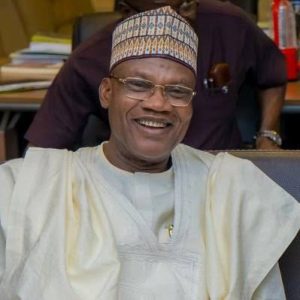By Barnabas Esiet.
The Federal Ministry of Education has taken a significant step towards revolutionizing the country’s education system with a major review of the national curriculum.
The new curriculum, which is set to take effect in the 2025/26 academic year, aims to reduce subject overload, promote skill development, and align Nigerian education with global best practices.
According to the Minister of Education, Dr. Tahir Mamman, the reform is designed to equip students with the knowledge and skills required to thrive in the global economy.
The Minister emphasized that the new curriculum will allow children to learn in a more focused and functional way, without the burden of too many subjects.
The new curriculum introduces several key changes, including a reduction in the number of subjects across all levels.
Pupils in Primary 1 to 3 will now take a minimum of 9 and a maximum of 10 subjects, while those in Primary 4 to 6 will study 11 to 13 subjects.
Junior Secondary School (JSS 1-3) students will take 12 to 14 subjects, and Senior Secondary School (SSS) students will retain 8 to 9 subjects, with a sharper focus on five core areas: Humanities, Sciences, Business, one trade subject, and core and compulsory general courses.
Another significant change is the introduction of a new subject, Citizenship and Heritage Studies, which will be taught at the senior secondary level.
This subject will replace Nigerian History, Civic Education, and Social Studies, and will focus on promoting citizenship, national values, and cultural heritage.
The Nigerian Language subject has also been streamlined to only offer three languages: Hausa, Igbo, and Yoruba. This move is aimed at promoting the study of indigenous languages and cultural heritage.
The new curriculum has also streamlined trade subjects, reducing the number of options from over 30 to six practical areas. These areas include:
1. Solar PV Installation and Maintenance
2. Fashion Design and Garment Making
3. Livestock Farming
4. Beauty and Cosmetology
5. Computer Hardware and GSM Repairs
6. Horticulture and Crop Production
This move is aimed at equipping students with practical skills that are relevant to the modern economy.
The new curriculum also introduces changes in assessment and examination. The National Business and Technical Examinations Board (NABTEB) will now administer 28 revamped trade subjects for technical colleges.
WAEC and NECO subjects have also been aligned to reflect the revised structure, focusing on core areas and relevant trades.
The new curriculum is expected to have several benefits for students, teachers, and the nation as a whole. Some of these benefits include:
– Reduced subject overload, allowing students to focus on key areas of study
– Promotion of skill development and practical skills
– Alignment with global best practices, making Nigerian education more competitive
– Improved assessment and examination processes, ensuring that students are evaluated on relevant skills and knowledge
– Better preparation of students for the modern economy and global workforce
The Federal Ministry of Education has assured parents, teachers, and students that it will provide the necessary support to ensure a smooth transition to the revised curriculum.
The Ministry will work closely with stakeholders, including teachers, school administrators, and parents, to ensure that the new curriculum is implemented effectively.
The overhaul of the national curriculum is a significant step towards revitalizing the education sector and equipping Nigerian students with the knowledge and skills required to thrive in the global economy.
With proper implementation, the new curriculum is expected to be a major milestone in the country’s education sector.










Comment here